
Theme and Sub-Themes
- PLENARIES - SUB-THEMES
- WSDS - Theme
PLENARIES - SUB-THEMES
3.45 pm – 5.00 pm
Stein Auditorium, India Habitat Centre

Ministerial Session - People's Aspirations and Sustainability : New Governance Paradigm
We are faced with the enormous challenge of delivering inclusive and sustainable development within the carrying capacity of our planet. Our success in doing so depends on the urgency with which this change is mainstreamed in the political agenda at the highest level and, subsequently, transmitted systemically and effectively throughout the political, social, and economic channels of decision making.
5.00 pm – 5.45 pm
Stein Auditorium, India Habitat Centre

AIR POLLUTION IS A SOLVABLE PROBLEM
More than 80% of Indian cities violate the prescribed standards of air quality. There is multiplicity of sources which contribute to pool of emissions which eventually deteriorate the quality of air in India. The interventions and solutions formulated at a special workshop during the WSDS, based on the findings of simulation studies, will be presented at this session.
6.15 pm – 7.30 pm
Stein Auditorium, India Habitat Centre
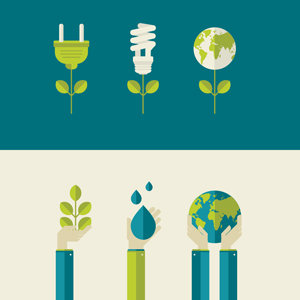
Climate ~Water ~ Energy ~ Food Nexus
Water, energy and food are intrinsically linked. The nexus between food security-water security and energy security is further complicated by the dynamics of climate change. The dominant mode of increasing energy supply i.e. consumption of fossil fuels increases the threat of climate change which in turn negatively affects water availability and food production.
9.45 – 11.00 am
Stein Auditorium, India Habitat Centre

HABITAT III AGENDA - SUSTAINABLE DEVELOPMENT GOALS AND IMPLICATIONS ON CITIES
For the first time an urban agenda was included as a global development goal by the United Nations - Goal 11 to make cities and human settlements inclusive, safe, resilient and sustainable. Also, cities are among the key non-nation entities called upon to make efforts to address and respond to climate change at the COP 21 in 2015.
11.05 am – 12.25 pm
Stein Auditorium, India Habitat Centre
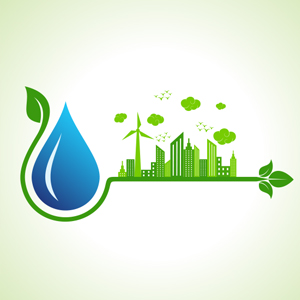
Sustainable Development Goals on Water: Challenges and Opportunities
Water is among the four vulnerable sectors most referred to by parties committing for mainstreaming climate change adaptation. Achievement of universal and equitable access to safe and affordable water depends on substantially increasing water use efficiency and implementing integrated water resources management.
1.15 pm – 2.30 pm
Stein Auditorium, India Habitat Centre
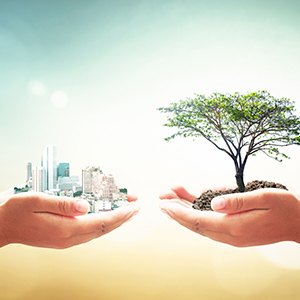
NDCs: PLANS, POLICIES & PRIORITIES
The Paris Conference on Climate Change culminated with a landmark agreement on climate change where countries put forward post-2020 climate commitments. Now governments are turning their attention toward implementing their Nationally Determined Contributions (NDCs), and integrating these goals and commitments into national--‐level planning processes and policies.
1.15 pm – 2.30 pm
Stein Auditorium, India Habitat Centre
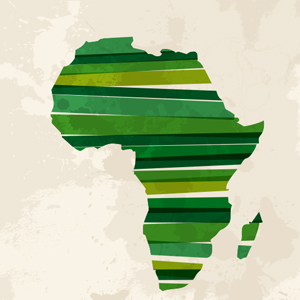
BEYOND 2015: SUSTAINABLE INFRASTRUCTURE FOR AFRICA’S TRANSFORMATION
Sustainable infrastructure and services in energy, transport, water, sanitation, urban, rural, and information and communications technology are essential enablers for Africa’s transformation. However, the investments needed to close Africa’s infrastructure gap are severely at risk from the adverse impacts of climate change.
1.00 pm – 2. 15 pm
Stein Auditorium, India Habitat Centre
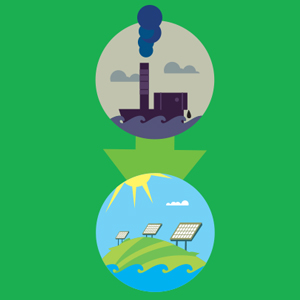
Energy Transitions: Perspectives & Priorities
This plenary session will focus on the key challenges that India’s energy transition faces, ranging from integrating renewables within the power system and the costs associated with it; the technology transition needed for the shift to cleaner sources of energy; energy transitions required across various sections of society; challenges of rapid urbanisation and its impact on energy markets.
2. 15 pm – 3.15 pm
Stein Auditorium, India Habitat Centre
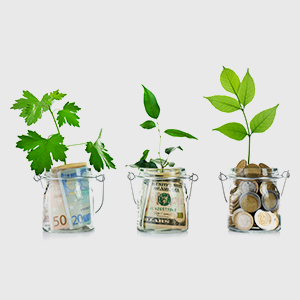
Climate Finance and Implementation Towards Sustainability
Climate finance is central to advancing a low-carbon and climate-resilient development pathways in developing countries. According to a World Economic Forum projection, much of the world’s $5.7 trillion annual investment will be needed for transitioning to a green growth trajectory.
WSDS - Theme
Beyond 2015: People, Planet & Progress
Human society faces some crucial challenges which have come to the fore now, particularly in the wake of the 21st Conference of the Parties (CoP) to the United Nations Framework Convention on Climate Change (UNFCCC). At one end, the population of the planet has changed significantly in recent decades. Significantly, at the beginning of the 20th century, the population of the world was 2 billion, and as we move along towards the second half of the second decade of this century, we have a total population of 7.2 billion people inhabiting planet Earth. Projections on the level at which this population would stabilize lie anywhere between 9 to 10 billion people. At the same time, incomes are increasing across the globe and so are human aspirations for greater consumption of goods and services. Some estimates indicate that the footprint of human activities is already at one and a half times the capacity of planet earth and its ecosystems to bear on a sustainable basis. As a result, several natural resources which are crucial for sustaining life on this planet are threatened by the impacts of human action.
The most daunting challenge that human society faces currently is the increase in risks associated with climate change. Dealing with this challenge effectively would also promote sustainable development and result in the realization of substantial co-benefits at the local level. The lack of action in dealing with climate change on the other hand would increase the risks associated with its worsening impacts particularly for the poorest societies on Earth. Climate change is projected to increase displacement of people. Populations that lack the resources for planned migration experience higher exposure to extreme weather events, particularly in developing countries with low income. Also, climate change can indirectly increase the risks of violent conflicts by amplifying well-documented drivers of these conflicts, such as poverty and economic shocks. The costs of stringent mitigation are very low and have been estimated at an average of 0.06 per cent per year for the global GDP. The impacts of climate change would become increasingly serious for fresh water resources, human health, the conservation of biodiversity and low lying islands as well as coastal regions, which would be threatened with an increase in sea levels. Sea level rise since the beginning of the last century up to 2010 was an average of 19 cm and if no mitigation efforts are taken in hand, by the end of this century, sea level rise could reach 0.98 meters. Corresponding to this, the increase in global temperatures by the end of this century could reach 4.8°C.
Against these realities and projections of the risks that human society would face in the future, it is essential to define progress in terms of what can be sustained. Some of the threats facing the planet today would create huge challenges in terms of the ability of human society to maintain growth at levels that have been possible in the past and which would need to be maintained for the welfare of society, particularly for those who live in poverty, in future. For instance, climate change is projected to undermine food security. It is projected that local temperature increases of 2°C or more above late 20th century levels would have a significant negative impact on the production of wheat, rice, and maize in tropical and temperate regions. Hence, global temperature increase of around 4°C or more above late 20th century levels, combined with an increase in food demand, would pose large risks to food security globally. Climate change is projected to reduce renewable surface water and ground water resources in most dry sub-tropical regions, thus, intensifying competition for water among sectors.
Throughout the 21st century, climate change is expected to lead to an increase in ill-health in many regions and especially in developing countries, with low income, as compared to a baseline without climate change. In urban areas, climate change is projected to increase risks for people, assets, economies and ecosystems, including risks from heat stress, storms and extreme precipitation, inland and coastal flooding, landslides, air pollution, drought, water scarcity, sea level rise, and storm surges. These risks will be amplified for those lacking essential infrastructure and services or living in exposed areas. Mahatma Gandhi throughout his life emphasized the principle of ‘antyodaya’ which essentially meant attention in all human endeavours to the welfare of the last, or people who were at the margin. Given the vulnerability of such people to the impacts of climate change and the risks associated with it, we must accept that it is essential to see that progress is based not merely on measurement of GDP, but the attainment of several other goals that are at the core of human welfare.
There are several elements in the challenge that human society is facing, which need comprehensive understanding and action to deal with. Firstly, there has to be widespread awareness across the world on the need for change. This need can be understood only if we absorb knowledge on what would happen in a scenario of inaction. The projections of climate change, the loss of biodiversity, and problems arising out of widespread increase related to water stresses are all inter-related. These are to a large extent problems exacerbated by human activities. The realization, therefore, has to dawn on human society that business as usual is no longer an option for moving to a future which is characterized by sustainability.
An important dimension of our daunting challenges relates to the oceans and bodies of water across the globe. This is an area which has been neglected in the past, but unless the warming of the oceans and its acidification are taken into account, in devising future development strategies and actions, the ecological and economic damage that would occur could become difficult to deal with. Ocean acidification will continue for centuries if carbon dioxide (CO2) emissions continue and this will strongly affect marine ecosystems and the impact will be exacerbated by rising temperature extremes. Global mean sea level rise will continue for many centuries beyond 2100. Sustained mass loss by ice sheets would cause larger sea level rise, and for some part of the mass, the loss might be irreversible. In an earlier session of the Delhi Sustainable Development Summit, His Excellency the President of the Seychelles highlighted the critical challenges to the blue economy of the world. Human society and a large number of other species are totally dependent on the stability of ocean ecosystems; in this context, the impacts of climate change and the pollution caused by growing volumes of wastes being dumped into the oceans of the world would have serious consequences.
Never before in the history of the human race has the nexus between planet, people, and progress been as critical as is the case today, given the changes that human activities are imposing on the Earth’s ecosystems in the pursuit of what is construed as human progress. Changes, therefore, are essential and long overdue.




